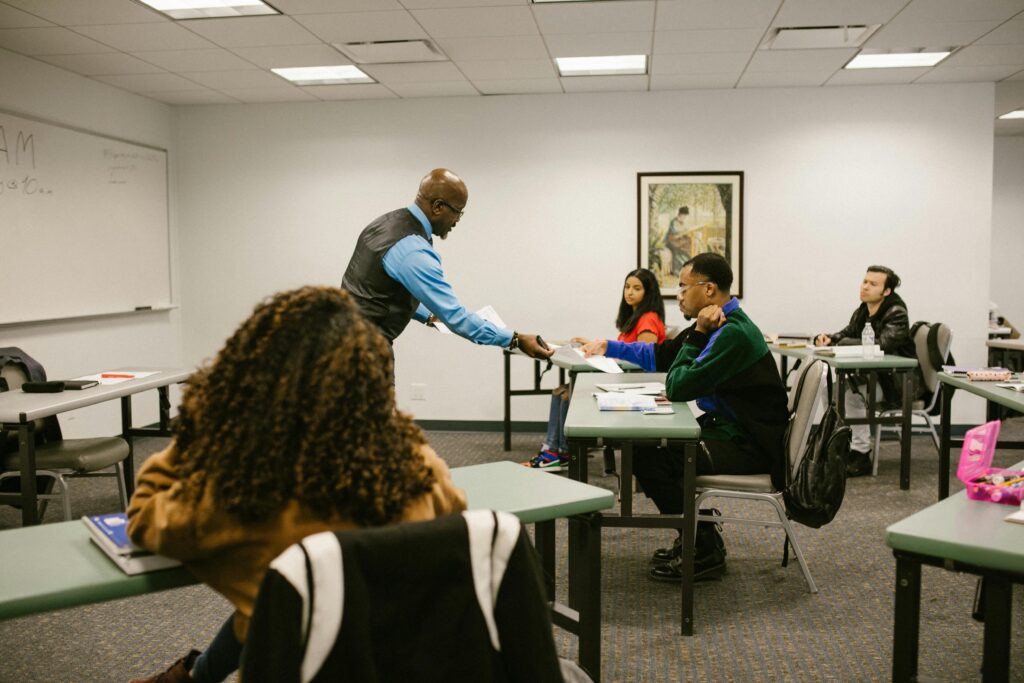Every year, I see hundreds of students stumble through medical school. Some drop out entirely, while others stay and suffer through every single day, questioning whether they belong in medicine at all. The truth? Around 95% of these struggling students share the same three habits and there’s a good chance you’re doing at least one of them right now. Fixing these habits isn’t about being perfect; it’s about learning how to study, plan, and think like a future doctor.
Mistake #1: Passive Reading Is Killing Your Grades

Most med students assume that the longer they read, the more they’re learning. They bury themselves in textbooks, spend hours memorizing entire chapters, and convince themselves that grinding will eventually lead to success. But when grades come back? Another disappointing result. That’s when the self-doubt begins: “Maybe I’m just not cut out for med school.”
The problem isn’t you it’s how you’re studying.
Memorizing hundreds of pages word-for-word is nearly impossible, and it’s not how your brain retains complex information. Instead, you need active recall, a strategy that forces your brain to retrieve information instead of simply re-reading it.
Here’s how you can start today:
- Pause every 15 minutes and quiz yourself on what you just read.
- Write down your answers without checking your notes.
- Focus on what you missed those gaps are the key to improving.
To make it even more powerful, create your own personal question bank for each chapter:
- Write 5–10 focused, high-yield questions.
- Test yourself without looking at your notes.
- Save the hardest ones in a dedicated notebook.
- By the end of the semester, you’ll have a custom-built study tool and a much better chance at top scores.
This approach transforms studying from a passive chore into an active skill. It improves retention and makes you exam-ready long before test week. Here’s how I use these techniques to ace exams, even last minute.
Mistake #2: No Schedule? Burnout Is Inevitable

If your weekly routine feels like a CEO’s calendar stacked study blocks, no breaks, and endless grind you’re not building discipline. You’re building a direct path to burnout.
This is how it usually unfolds:
You push yourself through 10-hour study days, convincing yourself you’re doing what top performers do. After a few weeks, exhaustion sets in. You take a few “rest” days, fall behind, and feel guilty. To catch up, you work even harder, sacrificing sleep and balance. By exam week, you’re pulling all-nighters just to cover the basics. The cycle repeats, and each time it drains you more.
This isn’t resilience it’s self-destruction.
The solution is simple: structure your week around energy, not just time. Choose one “reset day” each week, no matter what day it falls on, and use it to map out your week with intention:
- List your lectures and non-negotiable commitments first.
- Build a to-do list that matches your actual capacity, not your ambition.
- Place study sessions strategically, avoiding heavy blocks on already packed days.
- Schedule breaks like you schedule work so you don’t crash later.
When you protect your energy instead of just filling your schedule, you’ll notice your focus improves, your grades stabilize, and you’ll actually start living instead of just surviving. And no, extreme routines like 5 a.m. wakeups won’t save you.
Mistake #3: Memorizing Without Context Turns You Into a Walking Search Engine

You can memorize every nerve, every pathway, and every enzyme name, but when a patient walks into the ER with severe abdominal pain, none of that matters if you can’t apply what you know. Without practice, all that information turns you into a walking search engine full of facts but unable to think like a doctor.
Medicine is problem-solving. It’s about pattern recognition, critical thinking, and making decisions when there’s no time to flip through a textbook. If you can’t apply your knowledge, all the memorization in the world won’t make you a better physician.
Here’s how to break free from pure memorization:
- Study real patient cases, even brief ones, to see how theory translates to practice.
- Ask your professors or hospital mentors if you can shadow or review charts.
- Use online resources and textbooks with built-in case discussions.
- Always tie what you’re learning back to real symptoms and outcomes, not just lists and pathways.
By training your brain to connect dots instead of just storing data, you’ll build the skills that separate good students from future doctors. And that’s exactly why AI will replace doctors who don’t learn to think this way.
How to Actually Survive Medical School
Medical school is hard enough without sabotaging yourself. If you’re stuck passively reading, grinding yourself into exhaustion, or memorizing without learning how to think, it’s not because you’re not capable it’s because your system is broken.
The fix is simple but powerful. Build a schedule that protects your time and energy. Use active recall to study in a way your brain actually retains. And most importantly, practice with cases so you can bridge the gap between knowledge and skill.
Because at the end of the day, medicine isn’t about how many facts you know it’s about what you can do when someone’s life is in your hands.

